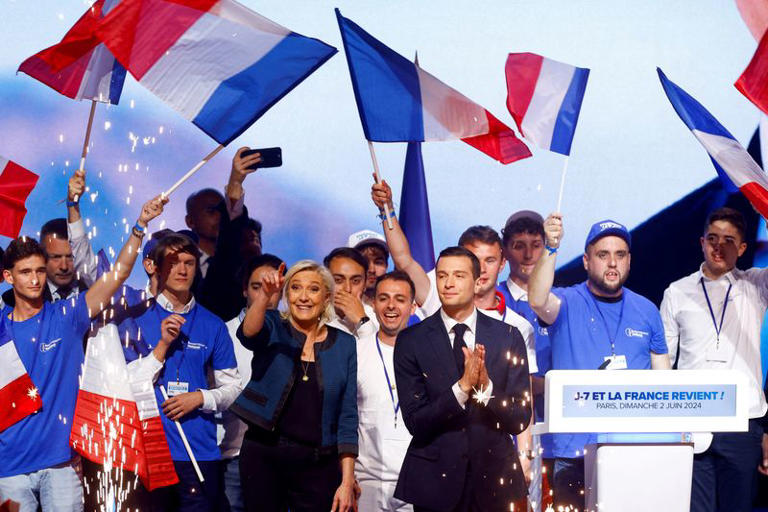
After heavy losses for his Renaissance party at the weekend’s European Parliament election, President Emmanuel Macron called snap elections for the lower house of parliament, with a first round on June 30 and a run-off on July 7.
Macron has made supporting homegrown tech companies a priority, making it easier for startups to hire from abroad, lobbying against European Union regulation he saw as too strict, and attracting investment from Amazon and Microsoft.
But Marine Le Pen’s far-right National Rally (RN), which is predicted to win the most seats in the election, has pledged to reduce the number of migrant workers allowed into France and impose greater scrutiny on foreign investment.
That could undermine the country’s AI ambitions, tech executives say.
“I completely agree with concerns regarding the party’s anti-migration stance,” said Julien Launay, CEO of AI startup Adaptive ML.
“In the two previous startups I’ve worked at, skilled immigration to France was a big driver of talent. Especially students that came to study here, did internships with different companies, and ended up staying. That’s an amazing pipeline for young talent.”
Camille Lemardeley, general director of Superprof, an education startup based in Paris, told Reuters policies the RN’s plans could create a less welcoming environment for international professionals, which could affect the broader business climate.
“The RN’s policy platform includes proposals that emphasize stricter immigration controls and a focus on national preference in employment,” he said.
“This could have a ripple effect on innovation and competitiveness, not just for Superprof, but for the entire French tech ecosystem.”
In recent weeks, France has sought to assert its position as an AI leader, with business and political leaders from around the world attending the annual VivaTech conference in Paris.
But the RN’s proposed restrictions on hiring foreign workers could undermine that, according to Hugo Weber, head of public affairs at Paris-based e-commerce firm Mirakl, who described the party’s policies as “fundamentally detrimental” to France’s tech ecosystem.
Mirakl, which among other services offers AI-powered solutions for online retailers, relies on investment from global venture capital funds, and the ability to recruit talent from abroad, Weber said.
“I am concerned about the ability of French startups to continue attracting funding, and remaining a destination for tech talent, particularly in AI,” he said.
The RN did not respond to a request for comment.






 /home/afripjzx/technewsglobal.net/wp-content/themes/foxiz/templates/popup.php on line 167
/home/afripjzx/technewsglobal.net/wp-content/themes/foxiz/templates/popup.php on line 167